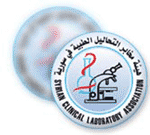|
It is increasingly recognized that ~70% of all clinical decisions are influenced by laboratory medicine results [1]. This means that laboratory medicine is a clinical specialty at the heart of healthcare and that laboratory medicine specialists have responsibility to ensure that we provide a high quality service complete with added value.
During the next five years we will see three trends in the methodology used in the clinical laboratory. Firstly, we will see more automation and more miniaturization of established tests. Secondly, we will see more tests delivered at the point of care as part of patient-centred care. Thirdly, we will see the introduction of a range of new biomarker tests as we better understand the molecular basis of disease. In all cases we will need to ensure appropriate training for staff and other users and assure quality through internal quality control and external quality assurance.
However, there is much more to providing a laboratory medicine service than analytical quality. As specialists we have a responsibility to add value to the service that we provide. This added value occurs through the provision of clinical and scientific advice both prior to testing and following the analytical phase, thereby converting data into knowledge for the benefit of individual and groups of patients. Examples of adding value include improving clinical effectiveness, evidence-based practice, and harmonisation in the interests of patient safety and the publication of relevant information to patients and other users of the service.
Both analytical quality and the value added to data by laboratory medicine specialists are part of a comprehensive laboratory accreditation process, such as that encompassed by ISO 15189 [2].
These are important and exciting times for laboratory medicine specialists. Through active leadership and participation in multidisciplinary clinical teams we have the opportunity to enhance the visibility and appreciation of our discipline. However, failure to take this opportunity could leave us as a small group of technicians ‘pushing buttons’ inside our laboratories. To a large extent the future of laboratory medicine is in our hands.
[1]. Beastall GH. The modernisation of pathology and laboratory medicine in the UK: networking into the future. Clin Biochem Rev 2008; 29: 3-10
[2]. ISO 15189:2007. Medical laboratories – Particular requirements for quality and competence. www.iso.org
|
